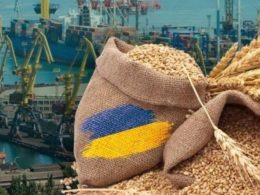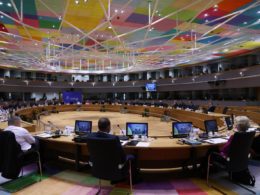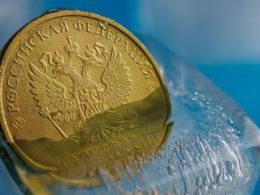Georgian police deployed water cannons, tear gas, and rubber bullets against thousands of protesters for a second night in Tbilisi, as demonstrations spread nationwide following the government's decision to halt EU accession talks until 2028.
At least 107 people were detained in Tbilisi and 10 in Batumi, with authorities warning these numbers may rise, OC-media and JAMnews report. While the Interior Ministry reported injuries to 10 officers, it provided no information about injured demonstrators, including TV Pirveli reporter Mariami Gaprindashvili, who was hospitalized with a severe head injury.
Erupting on the night of 28-29 November 2024, the protests came amid Georgia’s pivot toward Russia, reversing the small Caucasian country’s Euro-Atlantic aspirations since 2008. Critics argue that the ruling Georgian Dream party has increasingly aligned itself with Moscow, undermining Georgia’s long-standing aspirations for EU membership and Western democratic values.
"It was a new chapter, really," activist Marika Mikiashvili told Euromaidan Press, describing how police "rerouted and went to the neighboring streets and ambushed those people from all sides near Rustaveli theater." She emphasized the unprecedented nature of police pursuit: "Before now it was that we feared for our health. And now they are already injecting fear for our lives."

The Georgian Young Lawyers' Association accused law enforcement of breaking the law during the crackdown. Footage showed riot police dragging individuals across the asphalt and beating those already incapacitated by gas exposure.
"Some people were hiding on rooftops," Mikiashvili said. "Even when there is no active dispersal, I am thinking if we are going home maybe we will be just kidnapped from the side streets."
Journalist Aka Zarkua explained to Euromaidan Press that the government's decision revealed the end of its "dual game" on Europe: "Prior to that decision, they were trying in dual game. Their campaign was around that we are going towards Europe, but we are going with our dignity." He argued the government's confidence stems from its resources: "They have enough money to bribe all the unsatisfied people in Georgia and to maintain control of this white police and army."
The protests have spread beyond the capital to Batumi, Kutaisi, Zugdidi, and other cities - a development Mikiashvili called "remarkable" as it shows "how genuine and how widespread the protest is." The Interior Ministry warned of further detentions as authorities continue reviewing protest footage.
"No one really has the ambition that there will be continuous protests," Mikiashvili explained to Euromaidan Press. "The main emphasis is about staying as long as we can during the night and tiring the police for several days in a row."
She noted how protest safety has fundamentally changed: "Georgian protests were always more or less safe still. If you were not in the main epicenter of events, you could stand somewhere on the edges or at least there were several entrances to buildings that were safe. But now, I don't know, even when there is no active dispersal, I am thinking if we are going home maybe we will be just kidnapped from the side streets."
Zarkua provided context about the government's strategic position: "They feel confident. They have money. And that's the case for them." He explained that after claimed victory in October's disputed elections, Georgian Dream leader Bidzina Ivanishvili "thinks that it's a good moment, he won election, he has all the power, he controls police, he has money. And he says we will do everything."
"Being neutral in this region, in this geography means basically being controlled by Russia," Zarkua explained. "It's not possible for any kind of nation in the world to make some kind of dignified process of making terms with Russia."
Rights groups documented systematic targeting of journalists and protesters, while international organizations and Western diplomats have condemned both the government's decision to halt EU integration and the violent response to demonstrations.

Related:
- “Don’t let them steal your future”, former Ukrainian FM addresses protests in Georgia
- Georgian businesses, diplomats, universities launch strikes after crackdown on pro-EU protesters
- Pro-Russian party cements victory. Can Georgia’s revolution succeed?
- Georgia erupts as president slams Russia’s grip on disputed vote
- “Story of a dying empire”: Georgia’s “foreign agent” law protests echo Ukraine’s Euromaidan










